

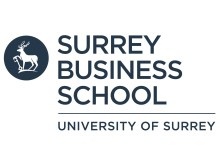
Impact in action
We've seen our research influence policy change, improve business tools in the tourism and hospitality industries and influence professional standards, guidelines and training. We pride ourselves in designing and delivering research which impacts on culture and society, economy, commerce and organisations, practitioner and professional services, the environment, health and welfare, public policy, law and services, and the food sector.
Our mission
We share the University of Surrey’s mission to drive positive technological, economic, social and environmental change in a world facing increasing challenges. We actively contribute to industry, commerce, government and civil society, and are committed to playing our part in solving society’s grand challenges.
Our contribution to the University’s research vision for impact is realised through knowledge exchange activities, and by making new connections and building upon established relationships with established partners to make real and noticeable changes in society.
Spotlight on our research
Our research has great impact, and we are proud to highlight our achievements through a series of short films, told by our research authors.


Who uses our research
We've built up long-term partnerships and collaborations with hugely influential organisations. We work with and for a number of organisations and the main end users of our research outcomes are industry, government bodies and various NGOs and Commissions falling largely within the tourism, hospitality and event sectors. We are committed to increase continuously the number and scope of such beneficiaries.
We have a range of external partners that we engage with on a regular basis through research, teaching, industry engagement and dissemination.
- Association of Independent Tour Operators (AITO)
- Institute of Hospitality (IOH)
- International Association of Place Branding
- International Congress and Convention Association (ICCA)
- International Federation for Information Technologies and Travel & Tourism
- Pacific Asia Tourism Association (PATA)
- US Travel Association.
- China National Tourist Office
- Hong Kong Tourism Board
- United Nations Environment Programme (UNEP)
- United Nations World Tourism Organization (UNWTO)
- World Economic Forum (WEF)
- World Travel and Tourism Centre (WTTC).
- Griffith University (GU)
- Spain’s Society for Tourist Innovations and Technology (SEGITTUR)
- Sun Yat Sen University
- Swedish Institute for Innovative Retailing (SIIR)
- The Hong Kong Polytechnic University
- Tourism South East (TSE)
- University of Queensland (UQ)
- Visit Britain
- Visit England
- Visit Surrey
- Visit Wales
- Watts Gallery.
- EProductive
- Explore Worldwide
- The Travel Foundation
- TUI Travel.
Hampton Court Palace
It's a Penalty.
Building our impact
Our impact strategy focuses on embedding a culture of long-term impact in academic thinking and producing high quality impact. We work closely with our partners, collaborators, advisory board, and SBS Enterprise to deliver this.
Case studies
An intelligent and interactive forecasting tool has benefited 370 tourism-related organisations in Asia. Imagine owning a hotel, theme park or an airline, and being able to forecast how many tourists will use your service in the upcoming busy season? Thanks to a research team at the University of Surrey, it turns out you can.
Commissioned by PATA (Pacific Asia Travel Association), the University of Surrey, in collaboration with The Hong Kong Polytechnic University, have developed a web-based tool that forecasts inbound tourist arrivals, expenditures, hotel room nights and occupancy rates. This interactive forecasting system is the first and only of its kind in the world and has greatly benefited tourism-related organisations' strategic decision making and policy making.
To date, over 370 tourism-related organisations have subscribed to the system, including Cathay Pacific who expanded their cabin crew, pilots and ground staff to meet demand forecasted for their most popular destinations, and Hong Kong Disneyland, who since using this innovative forecasting tool have improved their level of guest satisfaction and achieved their first annual profit since the resort's opening.
Research conducted by the University of Surrey results in improved information and support for socially excluded groups on day-trips and holidays. 127 million: That's how many people require accessible tourism in Europe. Prior to research conducted by the University of Surrey, this substantial figure was unknown.
Surrey's research also unearthed that existing schemes for accessible and social tourism were falling way short of their informational requirements, which led to the development of the first Europe-wide accessibility scheme Europe For All, plus a network of 'travel shops' in Belgium to help socially excluded groups overcome barriers in tourism participation.
Schemes like this have helped many disabled people and low-income groups access the information and support they need for an enjoyable and stress-free time away.
Surrey was also the leading research partner in FETE (First European Travel Experience), which gave 14 young people from disadvantaged backgrounds who'd never travelled before a chance to visit a non-neighbouring country for the first time.
On a wider level, Surrey's research has also contributed to the enhanced position of social tourism on the agenda of regional governments, while the Ministry of Tourism in Thailand is endeavouring to improve accessibility, starting with a pilot scheme in Bangkok.
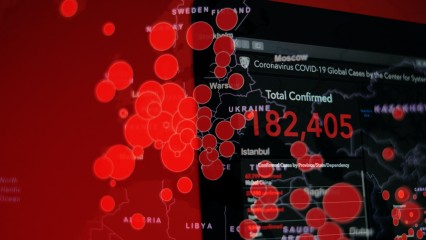
Centre for Competitiveness of the Visitor Economy
Professor Gang Li and Dr Anyu Liu, in collaboration with Professor Haiyan Song’s team at The Hong Kong Polytechnic University, produced Asia Pacific Visitor Forecasts 2020-2024 for the Pacific Asia Travel Association (PATA). The report has paid particular attention to the impact of Covid-19 on the visitor demand and the market recovery in 39 destinations of the region. Both Professor Li and Dr Liu were invited as panellists to PATA’s webinar on this topic on 14 May 2020.

Centre for Competitiveness of the Visitor Economy
Dr Yoo Ri Kim and Dr Anyu Liu are working on an experimental study regarding understanding consumers’ purchasing intention in restaurants and hotels after the Covid-19 lockdown measures are lifted. This study aims to provide both theoretical and practical implications for the hospitality industry after the lockdown measures have been lifted by informing consumer behavioural intention on social distancing measures and promotion offers.
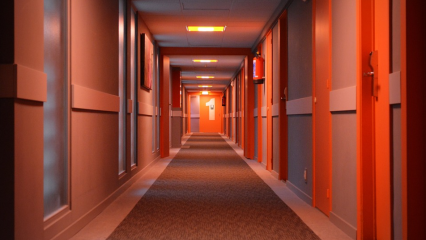
Centre for Competitiveness of the Visitor Economy and Centre for Digital Transformation in the Visitor Economy
Dr Tracy Xu is working with Mark Ashton and Dr Yanning Li to study the resilience capacity and real-time adaptive strategies hospitality organisations need to have in order to sustain in the Covid-19 pandemic. This project aims to provide insights into how business strategies for hospitality organizations may be better formulated to build sustainable competitive advantage.
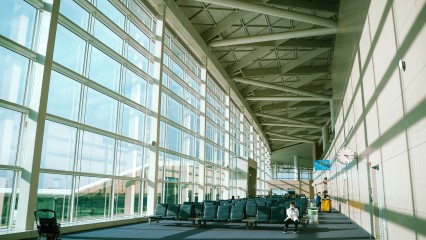
Centre for Competitiveness of the Visitor Economy
Dr Frankie O'Connell is working on studying the knock-on effects of the Covid-19 crisis on airline traffic (business and leisure passengers) within the Chinese domestic market as well as the China to Europe and China to other Asian markets. This study aims to uncover which type of passenger segment as well as which type of airline business model showed more resilience to the pandemic and which are most likely to rebound first.
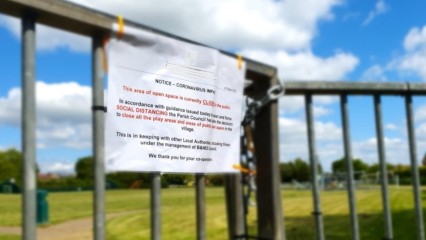
Centre for Digital Transformation in the Visitor Economy
Professor Caroline Scarles and Dr Tracy Xu are working in collaboration with Dr Birgitta Gatersleben and Dr Kayleigh Wyles from the School of Psychology to investigate the impact of Covid-19 on people’s use of local, everyday spaces of leisure and recreation. The research seeks to understand how behaviour during lockdown is significantly different to pre-lockdown behaviours and how experiences during lockdown may influence changes in behaviour going forward. This is an ongoing survey and results will be shared in due course.
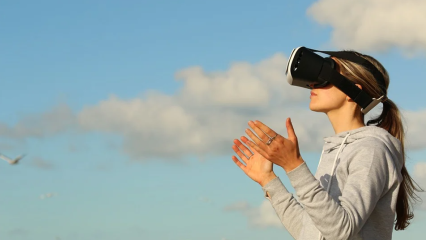
Centre for Digital Transformation in the Visitor Economy
Professor Caroline Scarles, Dr Tracy Xu and Dr Daisy Liu and Ayeisha Green are collaborating to investigate how experiences of virtual travel effect wellbeing during lockdown and how these experiences may affect travel planning and decision making going forward as the tourism industry moves into a post-Covid-19 era. This is an ongoing survey and the results will be shared in due course.
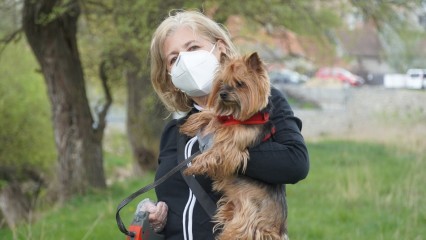
Postgraduate researcher Lori Hoy in the School of Hospitality and Tourism Management is investigating the lockdown’s impact on dog owners’ feelings, thoughts, behaviours, and wellbeing. The project is receiving input from various stakeholders including MP Luke Pollard, Shadow Secretary for Environment, Food & Rural Affairs. This project aims to generate information for government, businesses, and charities in future crises. Lori is supervised by Dr Brigitte Stangl and Professor Nigel Morgan.

SHTM/SWELL has been administering in the UK a user survey focusing on travel preferences and Autonomous Vehicles. This is an activity of WISE-ACT, which is an international network of experts chaired by Dr Nikolas Thomopoulos. Since this user survey is coordinated with the Eurobarometer and administered in several countries across Europe, SHTM/SWELL researchers will collaborate with WISE-ACT to control user responses received before and after the Covid-19 lock-down across participating countries. Findings will be published in this upcoming special Issue.

Professor Daniel Scott co-authored the assessment of Covid-19 on the tourism industry that is currently the most read journal article in the world on this topic. It reviews how the current ban on travelling is affecting the tourism industry and what the consequences for the sector may be. The article was published in April 2020.

Using data on 5,000 million air passenger searches on Skyscanner, we found that desire to fly in 2020 drop by 50% in Asia and 30% in Europe and the Americas, and intention to fly dropped by a further 20%, while most source markets remain optimistic about air travel during the last quarter of 2020. Professor Xavier Font and Dr Inma Gallego developed a methodology to detect the reactivation of tourist markets to help mitigate the effects of the Covid-19 crisis, with a traffic light dashboard that shows how destination managers can use air travel Big Data. The final article was published in June 2020.

Dr Yanning Li and Dr Tracy Xu are investigating the wellbeing of gig economy workers during lockdown. It aims to uncover how the Covid-19 pandemic influences the wellbeing of workers in the gig economy in the UK. This project will be beneficial for local authorities and public healthcare managers to address the needs of low-income and relatively insecure group.
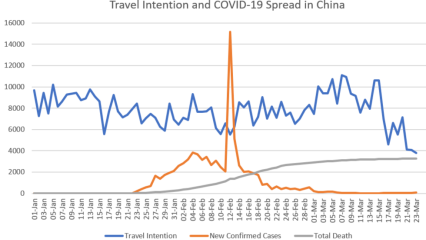
Centre for Digital Transformation in the Visitor Economy
Dr. Anyu Liu and Dr. Yoo Ri Kim with collaborators in China are working on a project to investigate the impact of the Covid-19 mobility restriction on people’s travel intention. The travel intention is measured by the daily sentiment score of 31 provinces/municipalities in China and the casual relationship is examined by the spatial DID approach. The findings of the ongoing study will be updated in due course.
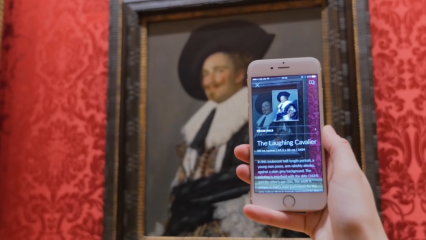
Centre for Competitiveness of the Visitor Economy and Centre for Digital Transformation in the Visitor Economy
Professor Caroline Scarles, Professor Gang Li, Dr Jason Chen and Dr Husna Zainal Abidin are evaluating the impacts of virtual engagement with and experience of art during times of crisis.
The objectives of this research project are as follows: firstly, to critique the shifts in visitor behaviour patterns throughout this time of crisis as they move from predominantly physical, on-site encounters with art, to engaging with art and curated tours through platforms such as Smartify; secondly, to evaluate the future opportunities for arts and heritage organisations in reframing existing business models to adopt greater virtual, greener and technology-led solutions for engaging with art galleries and associated exhibitions.
This project is funded by the SME Innovation Voucher Scheme, in collaboration with Smartify.
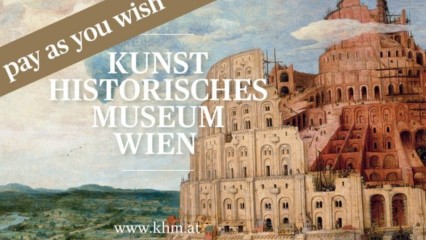
Centre for Competitiveness of the Visitor Economy
All around the globe tourism organizations are looking for ways to build trust to get customers back to travel, to visit sights, and to generally engage in tourism related activities. Dr Brigitte Stangl and Dr Margit Kastner (WU Vienna) are examining the implementation of innovative pricing strategies namely Pay-As-You-Wish (PAYW) for example for museums. PAYW brings benefits for suppliers and consumers. Organizations attract consumers, who can pay the price they can afford (considering the impact the lockdown had on the income of many people). Generated revenue allows organizations to cover costs and to continue operating the business in the usual quality, diversity, and excellence.
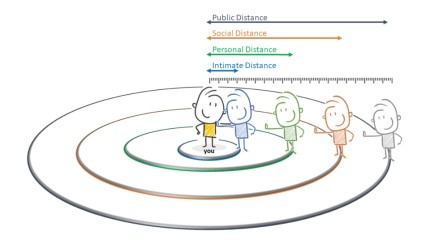
Centre for Competitiveness of the Visitor Economy
Dr Brigitte Stangl, Dr Margit Kastner (WU Vienna) and Owen Grainger-Jones are examining the change of proxemics introduced by Edward Hall in the early 60s. Potential changes of the four personal interaction zones intimate-, personal-, social- and public distance will be revealed in the context of tourism. A picture-based survey-approach is used to compare pre and post Covid-19 perceptions and differences between segments visiting museums will be revealed. Results of the study will allow to give suggestions concerning consequences for the design of services, such as museums, and information provision requirements post Covid-19.

Centre for Competitiveness of the Visitor Economy
The School of Hospitality and Tourism Management has been awarded an ESRC grant of £175,000 to study how tourism intentions are shaped by Covid-19 risks and uncertainties. Professor Allan Williams, Professor Gang Li and Dr. Jason Chen, together with Professor Vladimir Baláž of the Slovak Academy of Science, will analyse how risk and uncertainty impact on the UK's inbound, outbound and domestic markets. The two-stage project will first analyse a specially-commissioned survey of 17,500 potential tourists in the UK and its four main markets: France, Germany, USA and China. This will be followed by experimental research to assess how tourists respond to contrasting future Covid-19 health and containment scenarios.
This research will provide a new evidence base on tourist intentions that can underpin more accurate demand forecasts, and more targeted market research and policy measures for UK tourism. The project is undertaken in collaboration with VisitBritain and the Association of British Travel Agents.
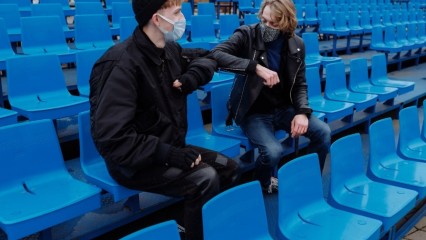
Centre for Competitiveness of the Visitor Economy and Centre for Digital Transformation in the Visitor Economy
Drs Yanning Li, Bora Kim and Tracy Xu are investigating how the most hit Sport Industry can recover from the pandemic through (re)engaging with fans. Primarily, their project is examining spectators’ motivations to attend a game and potential apprehensions post-Covid. A Covid-19 recovery strategy will be developed for sport clubs. This project is funded by the Research England SME Innovation Voucher Scheme, in collaboration with Coventry United Ladies Football Club.
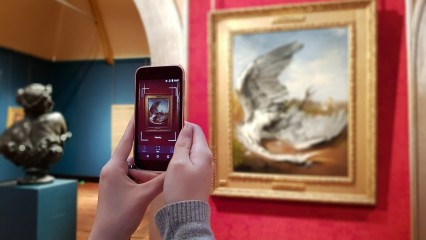
Professor Caroline Scarles, Professor Gang Li and Dr Husna Zainal-Abidin have been awarded an ESRC IAA grant in partnership with Smartify to engage with organisations in the arts and heritage sector to increase knowledge transfer of the benefits of adopting technology-based solutions for visitor engagement in arts and heritage.
The project will offer organisations hands-on experience of Smartify, support the development of virtual tours, and facilitate increased reach to new and existing audiences. The timeliness of the project is important as during Covid-19 galleries and museums have faced forced closures of physical sites, decimating visitor numbers and significantly impacting organisational revenue streams.
This research aims to provide augmented reality solutions that enable organisations to deliver online, virtual tours to allow visitors’ continued exploration of exhibits and collections while on-site visits remain restricted, whilst also opening opportunities for developing new ways of engaging visitors beyond traditional means of physical visitation in a post-Covid climate.

Professor Iis Tussyadiah and Dr Athina Ioannou, in collaboration with Brunel University, have been conducting a series of studies to identify public opinions on Covid-19 immunity certifications, also known as vaccine passports or immunity passports, in relation to their travel behaviour.
The first part of the study included mining opinions on Twitter, analysing sentiment polarisation as well as extracting themes using topic modelling. This was followed by an online survey targeting circa 1000 UK residents (adults, general population) to learn more about people's perception of the benefits and risks of using vaccine passports for travel and access to services, including hospitality.
Preliminary findings from the first-stage study can be found in the final report, a two-minute explainer Video, and press release.

While most people’s lives and work have been negatively affected by covid-19, it is estimated that women’s jobs and livelihoods have and continue to be overall more vulnerable to the pandemic. The elimination of gender discrimination at work has become a major challenge of the international political agenda.
A study lead by Albert Kimbu and Yanning Li and supported by Tracy Xu, Whitney Smith, and Xavier Font aims to develop a framework that will inspire and guide key tourism sector stakeholders in the four participating countries (Costa Rica, the Dominican Republic, Jordan and Mexico) and beyond in promoting the development of a holistic and integrated approach utilising empirical data and information to equip policymakers and businesses with the capacity and tools to enable better gender-sensitive policy formation during the recovery from the pandemic in 2022.
